This certificate program is designed to equip internal auditors with comprehensive knowledge and skills related to Environmental, Social, and Governance (ESG) topics associated with mandatory reporting in the European Union (ESG). Participants will gain a deep understanding of the regulatory context surrounding ESG, the global vision for embedding ESG practices, the role of internal auditors in providing advisory insight, and the role of internal audit in external audit of mandatory sustainability reporting. The course will also explore the critical relationships between internal auditors, the board, independent assurance providers, external auditors, and all stakeholders while assessing intangible and non-quantitative data.
Through interactive content and practical exercises, this course will empower internal auditors to perform a vital role in ensuring robust ESG reporting practices within EU-based organizations and contributing to sustainable and responsible business growth.
Participants who complete the course are eligible to sit for the certificate exam which is administered on The IIA’s LMS platform.
Date
Durée
Tarif HT
Lieu
Horaire
Places
Crédits CPE
Fiche formation
Date: 14/04/2025
Durée: 2 jours*
Adhérents: 1700 €
Non adhérents : 2200 €
Lieu: Classe-virtuelle-anglais
Horaires 4*9h-13h
Crédits CPE: 16
Date: 16/06/2025
Durée: 2 jours*
Adhérents: 1700 €
Non adhérents : 2200 €
Lieu: Classe-virtuelle-anglais
Horaires 4*9h-13h
Crédits CPE: 16
Date: 22/09/2025
Durée: 2 jours*
Adhérents: 1700 €
Non adhérents : 2200 €
Lieu: Classe-virtuelle-anglais
Horaires 4*9h-13h
Crédits CPE: 16
Date: 13/10/2025
Durée: 2 jours*
Adhérents: 1700 €
Non adhérents : 2200 €
Lieu: Classe-virtuelle-anglais
Horaires 4*9h-13h
Crédits CPE: 16
Date: 08/12/2025
Durée: 2 jours*
Adhérents: 1700 €
Non adhérents : 2200 €
Lieu: Classe-virtuelle-anglais
Horaires 4*9h-13h
Crédits CPE: 16
This certificate program is designed to enhance your current understanding of ESG concepts, including mandatory ESG reporting in the EU, and internal audit’s role in external auditing of sustainability reporting. This program is ideal for internal audit, risk management, and compliance leaders who currently possess a basic understanding of ESG topics and wish to enhance their knowledge and practical application of leading practices. Participants who successfully complete this program are eligible to plus themselves by obtaining The IIA ESG Certificate- a wonderful addition to both your resume and LinkedIn profile.
ESG fundamentals course or equivalent ESG auditing experience.
This certificate needs, to be obtained, a substancial personal work after the preparation training.
A certified professional
Live sessions
Participants who complete the course are eligible to sit for the certificate exam which is administered on The IIA’s LMS platform
Understand the EU ESG regulatory context (specifically: Fit for 55-CSRD-SFRD-ESRS).
Consider internal audit’s global vision and changes program, regarding embedding ESG.
Explore the various roles of internal audit, including advisory insight.
Define internal audit’s relationship with the board- governing body in their oversight duties.
Understand internal audit’s relationship with independent assurance providers, including external audit.
Determine the assurance level internal audit can provide.
Define the concept of value chain.
Establish methods for the inclusion of info from all the stakeholders.
Review the assessment of intangible data (non-quantitative) forward looking data.
Unit 1. EU ESG Landscape
– ESG, CSR, and Sustainability.
– Drivers of Regulatory Acceleration.
– Regulatory and Standard Setters mapping.
– THE GREEN DEAL: The European Union’s Sustainability Regulation Agenda.
– Climate Law: Fit for 55:
— Climate and Energy.
— EU Emissions Trading System (ETS) Reform.
— Carbon Border Adjustment Mechanism (CBAM).
— Land Use, Land Use Change, and Forestry (LULUCF).
— Effort-Sharing Regulation (ESR).
— Sustainable and Smart Mobility.
– Circular Economy.
– Biodiversity.
– Sustainable Finance.
– Sustainability Reporting.
– Sustainable Value Chain.
– Diversity and Equal Rights.
Unit 2. The Impact of Sustainability on the Internal Audit Framework
– Understanding the complexity of sustainability governance, strategy, business impacts, risks, and opportunities.
– Advisory and assurance.
– Integrated internal audit: approach and priorities.
– Sustainability and internal audit risk assessment.
– Internal control and data issues: comparability, availability, and reliability.
– Stakeholder engagement and communications.
Unit 3. Materiality Assessment
– Materiality assessment approaches.
– The extended enterprise and the value chain.
– Stakeholder engagement.
– Sustainability due diligence.
– Materiality assessment methodology under CSRD and ESRS.
– Roles of internal audit in the materiality assessment.
Unit 4. Sustainability Reporting
– Corporate Sustainability Reporting Directive (CSRD).
– European Sustainability Reporting Framework: CSRD and Sustainable Finance Regulation.
– Overview of European Sustainability Reporting Standards (ESRS).
– ESRS: Environment.
– ESRS: Social.
– ESRS: Governance.
– CSRD interoperability with ISSB, SEC, and GRI Standards.
– Roles of internal audit in sustainability reporting.
Unit 5. Sustainable Finance
– Sustainable finance overview.
– EU taxonomy.
– Sustainable Finance Disclosure Regulation (SFDR).
– Sustainability factors and preferences in MiFID II and the Insurance Distribution Directive (IDD).
– Climate benchmark standards (CTD and PAB).
– ESG Pillar 3 disclosure requirements (CRR).
– EU Green Bond Standard.
– ESG ratings.
– Roles of internal audit in sustainable finance.
Unit 6. Sustainability Governance
– Landscape of corporate governance and sustainability.
– Principles of corporate governance and sustainability.
– Sustainability governance maturity: From compliance to strategy.
– Embedding sustainability into the board, including:
— Sustainability and board structure.
— Sustainability and audit committees.
— Sustainability and strategy.
— Sustainability and integrated risk management.
— Sustainability and the internal control integrated framework.
— Sustainability reporting oversight.
– The role of internal audit in sustainability governance.
Unit 7. Internal Audit’s Relationship with Independent Assurance Providers
– Current practices for assuring sustainability reporting.
– Standards on sustainability assurance.
– Subject matter: Beyond sustainability data.
– CSRD assurance requirements.
– The role of the internal auditors in the selection of assurance providers.
– Coordination and reliance.
– Combined assurance.

L’IFACI est membre de
The Institute of Internal Auditors

L’IFACI est membre de l’ECIIA

© Copyright 2024 – IFACI